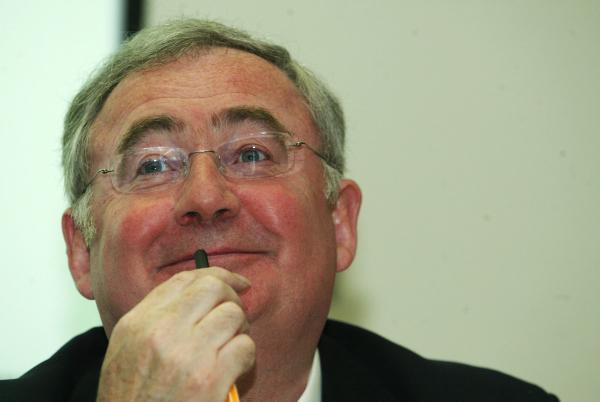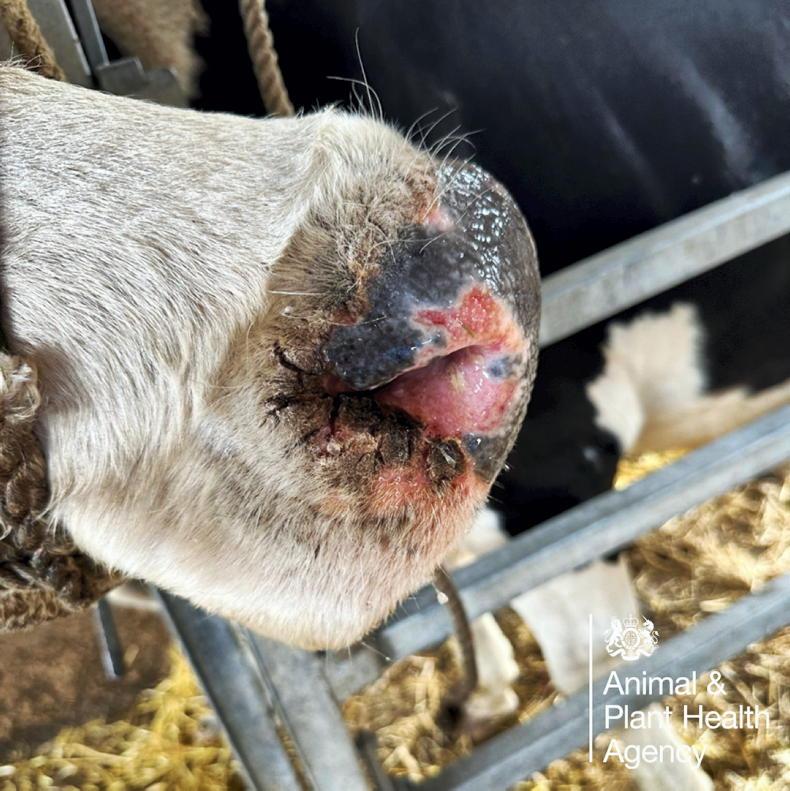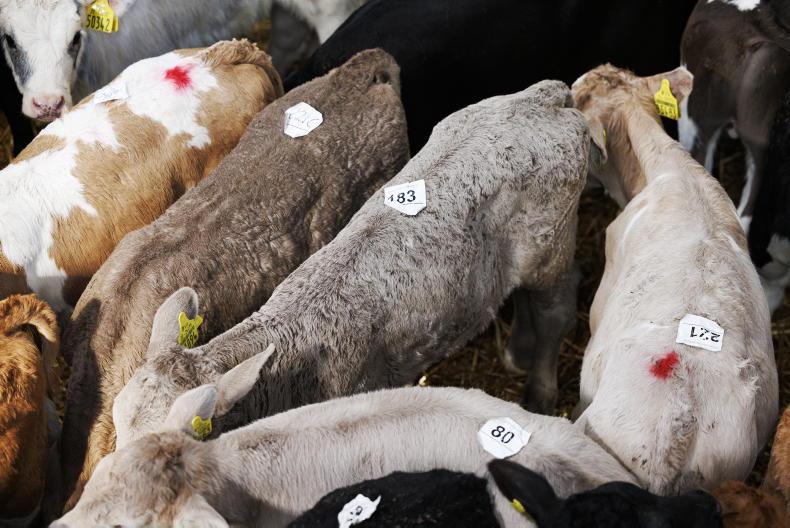No Minister has enjoyed or endured the glare of the public spotlight as much as Pat Rabbitte has since the current Government took office in March 2011.
The Minister for Communications, Energy and Natural Resources has had to deal with some of the most fractious and contentious issues on the political and social agendas in the past three and half years. From pylons to wind turbines and from fracking to EirGrid, Rabbitte has not been far from conflict.
Perhaps the single biggest issue Rabbitte has had to contend with is that of the EirGrid Grid25 strategy, which is aimed at improving the energy infrastructure in the country. Central to the upgrading works is the erection of 45m high pylons to carry 440kv power lines. These plans have been met with fury from people in the affected areas.
Opponents to these plans have pointed to potential health issues as being reason enough to halt the erection of overhead lines in favour of placing them underground. All the while, the Government has maintained that this is not feasible. So, if the Government has been so sure about the need to put power lines overhead, why have the people of Ireland not bought into this?
Removing his glasses and wearily rubbing his eyes, the Minister answered: “I wish I knew the answer to that.”
Rabbitte’s belief is that the anti-pylon campaigners have been peddling mistruths.
“I think there was some exaggeration, to put it mildly, in the midlands about the prospect of an export project in green energy to Britain and it was seized on and multiplied by a hundred. Fears were whipped up which caused misinformation and deliberate disinformation.
“Some of the claims have been fantastic, but this is public life and this is a democracy. If people genuinely hold concerns and fears, I have to concede that it is the job of Government and those charged with delivering Government policy, in this case primarily EirGrid, to work to allay those fears,” he said.
Rabbitte admitted that neither he nor EriGrid have been successful in easing those fears but counters those health claims by saying there ares more health risks from a person’s mobile phone.
EirGrid’s role in the upgrading of the energy network has taken a considerable level of criticism. Despite having embarked on a nationwide information campaign to educate the people of Ireland on the need for its Grid 25 strategy, confusion and mistrust have reigned.
Rabbitte thinks the semi-state body has been remiss in its duties of effectively informing the people. While he has respect for the work the body, he is also critical of its failings.
“My perception has been of an organisation of pointy-headed intellectuals who are excellent in terms of their technical and professional competence but that their engagement with ordinary people leaves something to be desired,” he said.
“They do have an advocacy role and I’m not sure that they have acknowledged that up to now. They don’t really see it as their job to directly interact with citizens … and that won’t run in 2014. You have to engage with people, you have to take on the arguments and you have to explain.”
Last month, Minister Rabbitte launched the latest in a long line of attempts to provide rural Ireland with a practical broadband network. A partnership between the ESB and Vodafone should see nearly half a million premises in rural Ireland obtain fibre-powered broadband before the end of the year.
The Government is also applying for in the region of half billion euro of funding from the European Commission to ensure that those who miss out on broadband through the ESB and Vodafone will receive it before 2016.
The process with the Commission has been “slow” but he hopes to have a conclusion in the near future.
The recent decision by the British Government to pull out of an agreement which would have seen the export of energy generated by 40 wind farms in the midlands to Britain has been something of an embarrassment for the Minister, who championed the economic benefits of the project for three years.
“The cost-benefit analysis that we did clearly demonstrated, on certain regulations and other assumptions, that it was a win-win for both countries. [There was] definite economic value rebounding to Ireland. The economic benefit is clear.
“However, that is contested by some people who think it’s OK to sell beef to the British but somehow it’s not OK to sell green energy to the British,” he argued.
With the Dáil summer recess less than two months away, does Minister Rabbitte, who turned 65 last Sunday, expect to be packing his haversack and either retiring from Ministry or moving on?
“Unfortunately that’s not a question I can answer, that’s a matter for the Taoiseach and the Tánaiste,” Rabbitte said.
The Minister also expressed his enthusiasm for the position despite having to contend with some of the more unpalatable decisions made by the Government. Minister Rabbitte has long been the “go to guy” for the Government when defending decisions even outside his portfolio.
“I enjoy it more than ever. I enjoy the challenge. I enjoy, believe it or not, some of the confrontation. This is a hugely important developmental department,” he concluded. However, he does expect that the Government parties will take a severe hit in the local and European elections.
Energy policy
Rabbitte stressed the need for Europe, and more specifically Ireland, to adapt to a changing energy landscape. He believes that we could lose our competitive edge as a result. He does admit that catching up with energy superpowers like America could prove difficult.
“We have fallen so far behind the Unites States. We have to address a number of big issues in European energy policy and interconnection is one of them. The effect of the shale gas revolution means that the US has cut its energy prices by 60%.
“If you say I’ve been taking a lot of flack on pylons or wind turbines, if I was to say in the morning that we’re going to start fracking, can you imagine what would come down on my head? It’s a big challenge for Ireland,” he said.
“I think fracking in Montana and fracking outside Manorhamiltion are not the same proposition. We have a comprehensive and detailed research project under way by the EPA in terms of testing. Given what happened in the United States and the length of time it took their EPA to come back with conclusion, I imagine there’s another year in it. They are testing [to see] is the technology safe,” he added.
“There are no easy solutions about energy. Energy is shooting to the top agenda globally. Energy is big politics and there aren’t any simple solutions,” he said.
Climate change
Climate change has rarely been far from policy makers’ thoughts in recent times, with agriculture consistently being an area of great discussion. Regarding 2030 climate targets, debate has raged as to whether Irish agriculture should be part of climate change targets. The Minister issued a cautioned hope that agriculture will be exempt.
“We have been seeking to make a case as to why Irish agriculture is different and why our systems are more efficient given that climate change is a global phenomenon. I hope that the arguments we have been making have been gaining traction in the European Union.
“That means that burden falling on energy and transport will be all the greater. I’m hoping to get reasonable cooperation from the farming community for what it is that I have to have to do if energy is to bear a disproportionate amount of the burden. I need some quid pro quo from the farming community,” he said.
The Minister launched a Green Paper consultation paper last week in an attempt to show how the Irish energy landscape should look up to 2030. A 10-week consultation process accompanies the Green Paper where the general public can give their thoughts on the energy network in Ireland.










SHARING OPTIONS